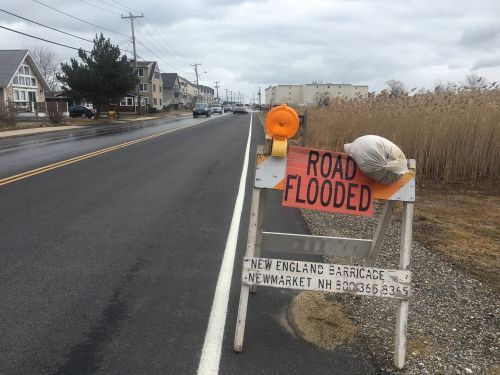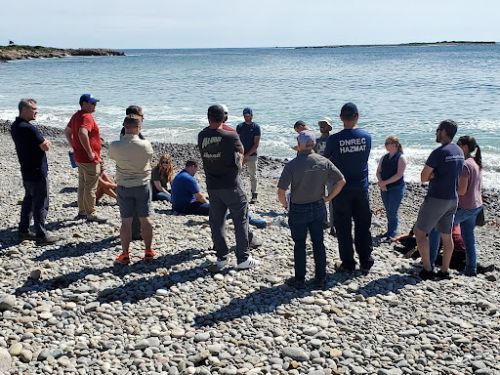Fiscal Year 2023: Preparedness for Natural and Human-Caused Disasters
The Disaster Preparedness Program (DPP) coordinates current operational capabilities and facilitates knowledge from across the National Ocean Service (NOS) and NOAA to ensure that commerce, communities, and natural resources can recover as quickly as possible. The DPP includes NOAA’s Gulf of Mexico Disaster Response Center, located in Mobile, Alabama, which is a fully staffed facility that expands the federal capacity to plan for and respond to hazards of all types in the five states bordering the Gulf of Mexico.
The program is dedicated to providing services that allow NOS and our partners to move through the preparedness cycle efficiently, safely and effectively—including creating and modifying NOS emergency plans for continuity of operations, providing training and exercises to improve preparedness and response posture, and serving in an incident coordination role during natural disasters and other emergencies.
Grants Funded for Innovative All-hazard Preparedness, Response, and Recovery Initiatives in Coastal Communities
The Office of Response and Restoration (OR&R) partnered with NOAA Sea Grant for the second year in a row to improve disaster preparedness within coastal communities. This year, four projects in the states of North Carolina, South Carolina, New Jersey, and Oregon were selected.
The four Sea Grant-based projects focus on several aspects of the shared goals of the two partnering programs. A total of $634,936 was awarded to fund projects that will help kids teach flood resilience in South Carolina, improve communications for flood awareness in North Carolina, develop ensemble flood forecast products to improve preparedness in New Jersey, and use innovation and education to advance disaster preparation in Oregon.
The DPP has a longstanding and strong partnership with the National Sea Grant Office. In 2022, OR&R awarded its first preparedness grants. In the first year, three competitively selected projects were selected that advance coastal and disaster preparedness. The projects led by Hawai’i Sea Grant, MIT Sea Grant, and Wisconsin Sea Grant are ongoing.
Enhancing Preparedness and Resiliency: Evolution of the NOS Readiness Self-Assessment
The Readiness Self-Assessment Tool is designed to help the National Ocean Service (NOS) and its program offices better prepare for emergencies and continuity events. This year, the DPP introduced key changes to the self-assessment, informed by feedback from the program’s pilot in fiscal year (FY) 2021, that reinforce National Ocean Service’s emergency preparedness and readiness planning. Specifically, DPP worked to:
- introduce the NOS Facilities Ready Self-Assessment Form, designed to help NOS facility managers identify and consider facilities-related vulnerabilities and enhance readiness;
- evolve the NOS Office-Wide Ready Self-Assessment form, mandatory for all NOS offices, to offer a more comprehensive evaluation of and provide a holistic overview of office readiness;
- track and showcase the National Ocean Service’s progress in preparedness. The DPP implemented a new four-level scoring model, which reflects a commitment to an ongoing improvement journey and provides a clearer view of overall readiness; and
- introduce new answer sets for assessing office-level preparedness to ensure accurate reflection of readiness.
With these improvements, the DPP continues to strengthen the ability of NOS and its offices and facilities to comprehensively evaluate and improve their preparedness and resiliency in the face of emergencies.
New Platform Increases Access to Training Resources for First Responders
In FY 2023, the DPP augmented the OR&R training program with tools and resources for NOAA field responders, federal partners, and state and local emergency managers. The DPP completed agreements with USALearning to launch a Learning Management System (LMS). The LMS, set to launch in 2024, will allow OR&R to host self-paced training resources which will benefit participants previously limited by time zone or work schedule. Students who have taken in-person oil and chemical spill courses will have access to job aids and just-in-time refreshers to keep their knowledge and skills sharp. Robust automation capabilities will streamline the application and evaluation processes, allowing the training team to focus on course creation and student outreach. The DPP continues to adapt to the new and emerging needs of first responders from across NOAA and our federal, state, and local partners.
 An official website of the United States government.
An official website of the United States government. 

